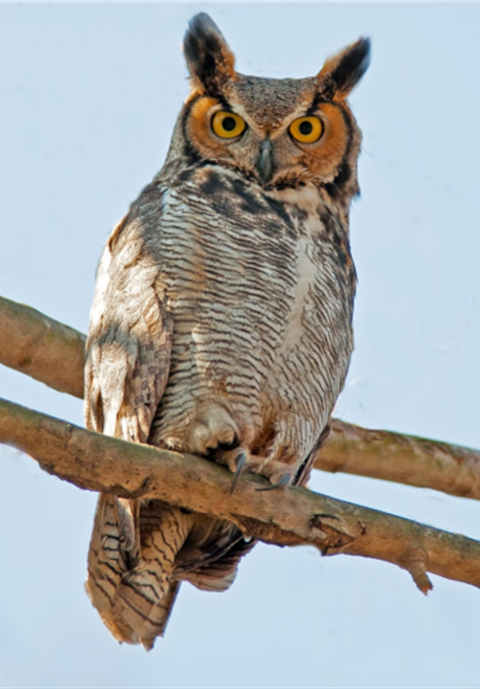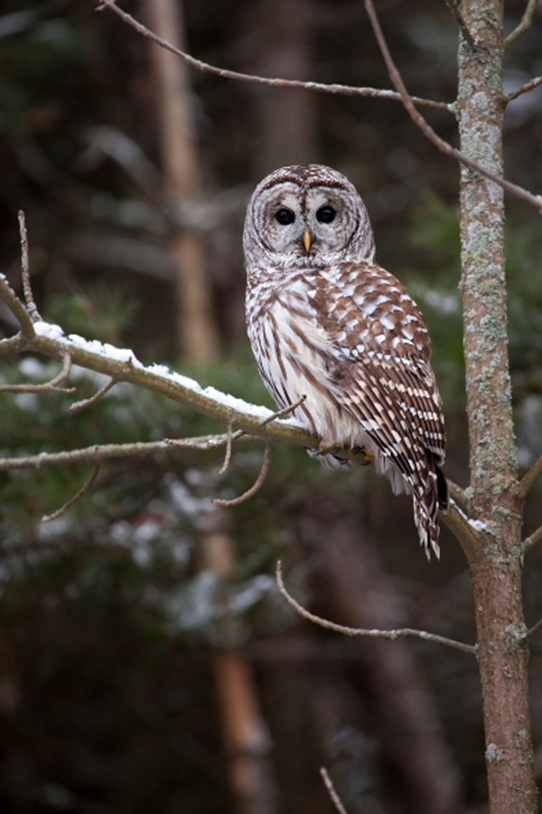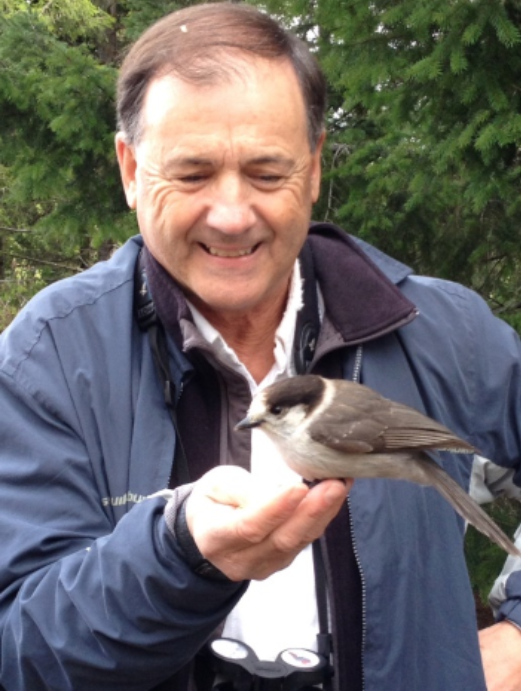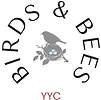Question:
I live in a suburban area in Calgary and I was out walking my dog one evening. Suddenly, a very large bird that looked remarkably like an owl, crashed to the ground right near me. I did not know that such birds even lived in my vicinity. What kind of owl might it be?
Response:
Any largish owl seen in the Calgary area is going to be either a Great horned owl (the provincial bird of Alberta) or a Barred owl. They are both quite common. The former are slightly larger and bulkier than the Barred owls, but the easiest way to tell them apart is whether they have feather tufts or so-called “ears” on the top of their heads. As is indicated by their name, Great horned owls definitely have obvious ear tufts, which, by the way, have nothing to do with hearing but more to do with communication and camouflage. And if, in future walks, you do not actually see the owl, their calls are quite distinct too. The Barred owl’s distinctive call sounds like “who cooks for you…who cooks for you all?” Unlike the Great horned owls, Barred owls never used to exist where you live. This species slowly moved across the continent to the west and they are now outcompeting the endangered Spotted owls for nesting and feeding territories and also killing smaller Western screech owls. You were also wondering why the owl you saw had crashed down to the ground out of a tree. Maybe it was going after some prey item that you and your dog flushed out or just fighting with another owl over territory. Perhaps it was just startled. It is not uncommon for owls to be somewhat blind on especially dark moonless nights. While they do have excellent night vision, they need at least a bit of light to work with.
David M. Bird, Ph.D., Emeritus Professor of Wildlife Biology, McGill University www.askprofessorbird.com

David M. Bird is Emeritus Professor of Wildlife Biology and the former Director of the Avian Science and Conservation Centre at McGill University. As a past-president of the Society of Canadian Ornithologists, a former board member with Birds Canada, a Fellow of both the American Ornithological Society and the International Ornithological Union, he has received several awards for his conservation and public education efforts. Dr. Bird is a regular columnist on birds for Bird Watcher’s Digest and Canadian Wildlife magazines and is the author of several books and over 200 peer-reviewed scientific publications. He is the consultant editor for multiple editions of DK Canada’s Birds of Canada, Birds of Eastern Canada, Birds of Western Canada, and Pocket Birds of Canada. To know more about him, visit www.askprofessorbird.com or email david.bird@mcgill.ca.





